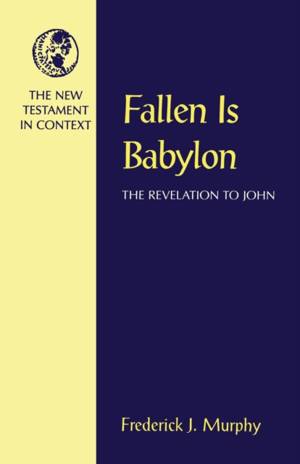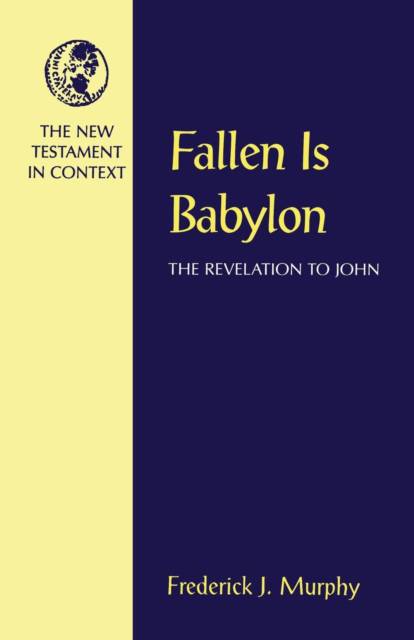
Bedankt voor het vertrouwen het afgelopen jaar! Om jou te bedanken bieden we GRATIS verzending (in België) aan op alles gedurende de hele maand januari.
- Afhalen na 1 uur in een winkel met voorraad
- In januari gratis thuislevering in België
- Ruim aanbod met 7 miljoen producten
Bedankt voor het vertrouwen het afgelopen jaar! Om jou te bedanken bieden we GRATIS verzending (in België) aan op alles gedurende de hele maand januari.
- Afhalen na 1 uur in een winkel met voorraad
- In januari gratis thuislevering in België
- Ruim aanbod met 7 miljoen producten
Zoeken
Omschrijving
The Book of Revelation is one of the most difficult of biblical books to understand, depicting the clash of cosmic powers, the interplay of bizarre images, and the specific problems of particular churches in the Roman province of Asia. Despite its opacity, Revelation has enjoyed great influence down through the ages, an influence felt in art, literature, and theology. The relative ease with which its images can be adapted to varied situations, however, has produced problematic interpretations that are far from what the author intended.
Many misinterpretations of Revelation result from lack of appreciation of its original contexts: historical, social, literary, theological. To address this problem and to enable today's readers to understand how the book would have been read by early Christians, this commentary makes available the best in recent and classic biblical scholarship on Revelation and its setting. The result is that the reader will see Revelation in its original contexts and thereby fully comprehend it as one possible Christian response to specific conditions in the eastern Roman Empire in the first century.
"Murphy's commentary is insightful and a pleasure to read. It is an excellent introduction to a fascinating and complex biblical book. I recommend it highly for students, pastors, and lay people." -- Adela Yarbro Collins, University of Chicago
Frederick J. Murphy is professor of religious studies at the College of the Holy Cross in Worcester, MA, and the author of The Religious World of Jesus and Pseudo-Philo: Rewriting the Bible.
Many misinterpretations of Revelation result from lack of appreciation of its original contexts: historical, social, literary, theological. To address this problem and to enable today's readers to understand how the book would have been read by early Christians, this commentary makes available the best in recent and classic biblical scholarship on Revelation and its setting. The result is that the reader will see Revelation in its original contexts and thereby fully comprehend it as one possible Christian response to specific conditions in the eastern Roman Empire in the first century.
"Murphy's commentary is insightful and a pleasure to read. It is an excellent introduction to a fascinating and complex biblical book. I recommend it highly for students, pastors, and lay people." -- Adela Yarbro Collins, University of Chicago
Frederick J. Murphy is professor of religious studies at the College of the Holy Cross in Worcester, MA, and the author of The Religious World of Jesus and Pseudo-Philo: Rewriting the Bible.
Specificaties
Betrokkenen
- Auteur(s):
- Uitgeverij:
Inhoud
- Aantal bladzijden:
- 496
- Taal:
- Engels
- Reeks:
Eigenschappen
- Productcode (EAN):
- 9781563381522
- Verschijningsdatum:
- 1/08/1998
- Uitvoering:
- Paperback
- Formaat:
- Trade paperback (VS)
- Afmetingen:
- 140 mm x 215 mm
- Gewicht:
- 680 g

Alleen bij Standaard Boekhandel
+ 254 punten op je klantenkaart van Standaard Boekhandel
Beoordelingen
We publiceren alleen reviews die voldoen aan de voorwaarden voor reviews. Bekijk onze voorwaarden voor reviews.









